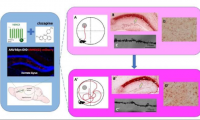-
Making young mice old in a matter of three weeks
- Source: drugdu
- 121
- April 29, 2023
-
Amphera and Alligator Bioscience reveal mitazalimab-MesoPher update
- Source: drugdu
- 129
- April 29, 2023
-
Immunotherapy strongly improves prognosis of babies with leukemia
- Source: drugdu
- 138
- April 28, 2023
-
Orbital raises $270 million in biotech’s largest Series A round this year
- Source: drugdu
- 225
- April 28, 2023
-
Study shows no significant cognitive benefit of adhering to Mediterranean diets regardless of calorie intake
- Source: drugdu
- 133
- April 27, 2023
-
Drugmakers take sides in Amgen, Regeneron fight over antibody patents
- Source: drugdu
- 171
- April 25, 2023
-
How alcohol consumption contributes to chronic pain
- Source: drugdu
- 120
- April 25, 2023
-
New injectable cell therapy could resolve osteoarthritis
- Source: drugdu
- 120
- April 25, 2023
-
J&J study data show dramatic benefit to multiple myeloma cell therapy
- Source: drugdu
- 114
- April 20, 2023
-
CDC signs off on additional Covid-19 booster doses for certain people
- Source: drugdu
- 106
- April 20, 2023
your submission has already been received.
OK
Subscribe
Please enter a valid Email address!
Submit
The most relevant industry news & insight will be sent to you every two weeks.













